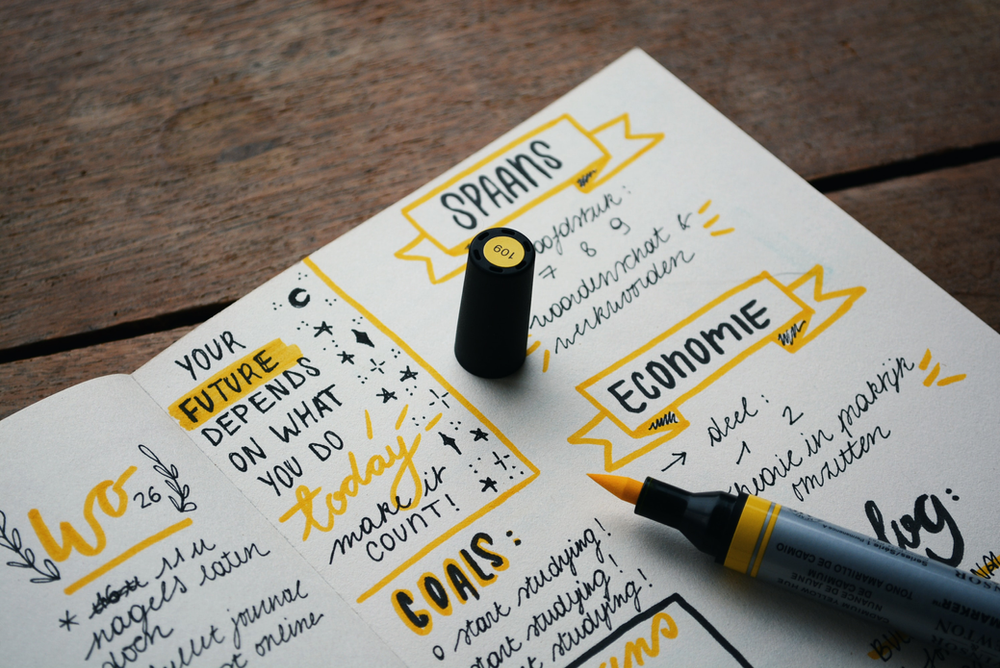Getting in the New Year’s Spirit
As the clock ticks down to the final moments of the year, the world collectively anticipates the arrival of New Year’s Eve, a time-honored celebration that marks the transition from one chapter of life to the next. New Year’s Eve is more than just a night of revelry; it is a symbolic gateway, inviting us to reflect on the past, cherish the present, and envision the possibilities of the future. As we bid farewell to the old year and embrace the new, it is customary to not only revel in joyous festivities but also to set intentions for personal growth and well-being. In the spirit of holistic living, 2024 beckons us to embark on a journey towards balance and fulfillment—setting forth holistic goals that encompass the mind, body, and spirit.
In this pursuit, let us explore resolutions that nurture our well-being, foster meaningful connections, and inspire a harmonious and purposeful existence in the year ahead.
Why are Holistic Goals Important?
Holistic goals are important to have because they recognize the interconnected nature of various aspects of our lives—mind, body, spirit, relationships, and more. Unlike narrowly focused goals that may address only one-dimension, holistic goals encompass a broader and more comprehensive perspective.
Here are several reasons why setting holistic goals is crucial:
Integrated Well-being. Holistic goals promote overall well-being by considering physical, mental, and emotional health. By addressing multiple facets of our lives, we strive for a balanced and harmonious existence.
Long-Term Fulfillment. Narrow goals may bring short-term satisfaction, but holistic goals aim for sustained fulfillment. They acknowledge that true contentment arises from addressing various dimensions of life and fostering a sense of purpose and connection.
Prevention and Resilience. Holistic goals often involve proactive measures to prevent issues rather than just reacting to them. By nurturing physical and mental health, building resilience, and fostering positive relationships, individuals are better equipped to face life’s challenges.
Interconnectedness. Our well-being is interconnected with our environment, relationships, and personal development. Holistic goals recognize and leverage these connections, fostering a sense of purpose that goes beyond individual achievement.
Enhanced Quality of Life. Holistic goals contribute to an improved quality of life by encouraging us to engage in activities that bring joy, meaning, and fulfillment. This can lead to increased happiness and life satisfaction.
Improved Productivity. Balancing various aspects of life can enhance productivity. When individuals feel physically and mentally well, they are likely to perform better in their professional and personal endeavors.
Mind-Body Connection. Holistic goals acknowledge the mind-body connection, recognizing that mental and emotional well-being can impact physical health, and vice versa. This understanding supports a more comprehensive approach to self-care.
Adaptability. Life is dynamic and ever-changing. Holistic goals encourage adaptability by focusing on overarching principles and values rather than rigid, specific targets. This flexibility allows for adjustments in response to evolving circumstances.
Enhanced Relationships. Holistic goals often include intentions for improving relationships and fostering connections with others. Strong social connections are a vital component of well-being and can provide emotional support and encouragement.
Personal Growth. Holistic goals inspire continuous personal growth by encouraging individuals to explore various facets of themselves and their potential. This journey of self-discovery contributes to a richer and more fulfilling life.
In essence, holistic goals provide a comprehensive framework for living a purposeful, balanced, and satisfying life, recognizing that true well-being extends beyond isolated achievements or improvements in one area of life.
Integrating Mind, Body, and Soul in your New Year’s Planning
Since holistic goal setting is a must for 2024, we wanted to break it down into 3 comprehensive lists. Join us as we give you specific mind, body, and spirit goals to set and maintain this year!
Mind Goals:
Daily Mindfulness Practice. Dedicate time each day to mindfulness meditation or a mindfulness-based activity to enhance mental clarity and focus.
Learn a New Skill. Choose a skill or subject you’ve always wanted to learn and commit to developing expertise in that area throughout the year.
Read Regularly. Set a goal for the number of books you want to read in 2024, covering a variety of genres to stimulate your mind.
Limit Screen Time. Establish specific periods to disconnect from electronic devices, reducing screen time to promote mental well-being and better sleep.
Journaling. Develop a consistent journaling habit to reflect on thoughts, experiences, and personal growth. This can help gain insights into your own mind.
Online Course or Workshop. Enroll in an online course or attend workshops to acquire new knowledge and skills in a field of interest.
Critical Thinking Exercises. Engage in exercises that stimulate critical thinking, such as solving puzzles, riddles, or participating in thought-provoking discussions.
Mind Mapping for Creativity. Use mind mapping techniques to visualize ideas, organize thoughts, and stimulate creative thinking.
Cultivate a Growth Mindset. Embrace challenges as opportunities for growth and view failures as stepping stones toward success, fostering a growth mindset.
Stress management Techniques. Learn and practice stress management techniques such as deep breathing, progressive muscle relaxation, or guided imagery.
Limiting Negative Self-Talk. Identify and challenge negative self-talk patterns, replacing them with positive and affirming thoughts.
Mindful Listening. Practice active and mindful listening in conversations, fostering better understanding and connection with others.
Body Goals:
Regular Exercise Routine. Establish a sustainable exercise routine, combining cardio, strength training, and flexibility exercises for overall physical fitness.
Balanced Nutrition. Adopt a well-balanced and nourishing diet, focusing on whole foods and mindful eating habits.
Hydration. Ensure proper hydration by drinking an adequate amount of water throughout the day, tailored to your individual needs.
Mindful Eating Practices. Practice mindful eating by savoring each bite, paying attention to hunger and fullness cues, and cultivating a healthy relationship with food.
Adequate Sleep Routine. Prioritizing getting 7-8 hours of quality sleep each night to support physical recovery, cognitive function, and overall well-being.
Regular Health Check-ups. Schedule regular health check-ups and screenings to monitor and maintain your physical health proactively.
Outdoor Physical Activities. Incorporate outdoor activities to your routine whether it’s hiking, cycling, or playing sports, to enjoy the benefits of fresh air and nature.
Limit Sedentary Time. Be conscious of sedentary behavior and incorporate breaks to stand, stretch, or move throughout the day, especially if you have a desk job.
Body Positivity. Cultivate a positive body image by focusing on the aspects of your body that you appreciate and by embracing a mindset of self-love and acceptance.
Spirit Goals:
Spiritual Practice. Cultivate a spiritual practice that aligns with your beliefs, whether it’s meditation, prayer, or a nature-based connection.
Gratitude Journal. Maintain a gratitude journal to regularly reflect on and appreciate the positive aspects of your life.
Connect with Nature. Spend more time in nature to rejuvenate your soul, whether it’s hiking, gardening, or simply taking mindful walks.
Creative Expression. Engage in a creative pursuit, such as art, music, or writing, to express your innermost thoughts and emotions.
Build Meaningful Relationships. Prioritize and nurture relationships with friends, family, and community to create a support system and foster a sense of belonging.
Explore Spirituality. Explore and deepen your understanding of spirituality through books, discussions, or attending spiritual gatherings that align with your beliefs.
Nature Retreats. Plan retreats or regular outings in nature to rejuvenate your soul and connect with the beauty of the natural world.
Mindful Living. Embrace mindful living by being fully present in your daily activities, savoring moments, and appreciating the richness of life.
Connect with the Community. Foster meaningful connections with like-minded individuals through community involvement or joining groups that share your interests.
Practice Forgiveness. Work on letting go of grudges and practicing forgiveness, both towards yourself, for emotional healing and growth.
Create a Sacred Space. Establish a sacred space in your home where you can retreat for moments of quiet reflection, mediation, or prayer.
Set Intentions for the Day. Start each day by setting positive intentions for how you want to show up in the world, aligning your actions with your deeper values.
Remember, these goals are just a starting point, and it’s essential to tailor them to your personal values, aspirations, and circumstances. Setting realistic and achievable milestones will contribute to a more fulfilling and balanced life in 2024.
Do you need professional guidance in helping set, achieve, and maintain these goals? Schedule a complimentary 15min session to ensure we are a good fit for you. We have several skilled and compassionate therapist in St. Petersburg, Fl!
Read about three of our clinicians who can help create a holistic-friendly goal plan that’s tailored to your specific needs!
Areas of expertise: trauma, mindfulness/meditation, anxiety, depression, codependency, life transitions, young adults, LGBTQIA, existential issues, men’s issues, stress managements, and work-life balance.
“I’m most passionate about helping people heal from traumatic experiences, such as early childhood trauma, physical/emotional/sexual abuse, and other adverse events. It’s not uncommon for trauma to create lasting patterns, like depression, dissociation, codependency, low self-esteem, panic attacks, or relationship issues. My goal is to help you feel empowered to release these patterns, decrease your traumatic stress symptoms, and feel safe in your life again. Every person is unique, so especially during the early stages of treatment, I’ll focus on getting to know who you are and what approach feels best for you. Then we can work together so that you can walk away from therapy having successfully reached your goals!”
Areas of Expertise: anxiety, depression, stress reduction/burnout, life transitions, chronic pain, spiritual health and wellness, and relationship issues.
“My approach to therapy is holistic, highly somatic and draws on eastern philosophies centered around awareness practices, breathing techniques, and acceptance and compassion training to help regulate both the body and mind and guide one’s energy towards a fuller and healthier expression of who they are. I believe that when one dedicates themselves to self-study and a more compassionate way of living, they can discover unhelpful habits and patterns of thought that perpetuate stress, trauma and discontent in daily life. When we learn how to be more mindful, we can find what it means to stay grounded, move energy that is stuck in the body, and ride the waves of this crazy thing called life.”
Areas of Expertise: stress management, anxiety, depression, trauma, grief/loss, family issues, life transitions, communication, women’s issues, family issues., ADHD (teens and adults), parenting concerns/coaching, and relationship issues
“As a natural strategist and information gatherer, I focus on learning about you! This includes your past, present, and future. Therefore, my approach to therapy is person-centered and holistic. I have found that many of the things that hinder us from moving forward are our own coping mechanisms, something that may have once served us well in the past but is no longer working for us now. I will teach you techniques to manage ruminating thoughts or other anxieties you may be struggling with by exploring the root of these thoughts and practicing strategies together in a safe and comfortable space. My experience in teaching taught me that we are curious creatures, and that education can hold a lot of power in healing! Understanding what is happening in your brain and body can help you increase self-resilience and patience. I can help you develop a deeper understanding of your own thoughts and behaviors as well as how to use meditative techniques such as grounding, guided imagery, and deep breathing to release your stress and overwhelm and feel more grounded and calmer.”
If you’re interested in scheduling a free 15-minute consultation with Rochelle Young, Hall Birdsong, or Nicole Malene, Get Started Here!
Conclusion – Holistic Goal Planning
As we draw the curtain on the year 2024, our journey of holistic goal planning comes to a fulfilling close. The past twelve months have been a tapestry woven with intentions for mind, body, and soul, creating a roadmap for personal growth and well-being. The significance of setting holistic goals has unfolded in myriad ways, guiding us toward a more balanced and purposeful existence.
Alayna Dorfman





